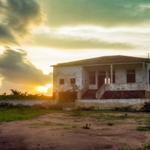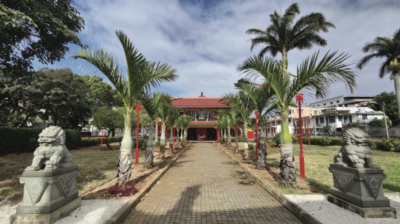Mozambique: Insurgency in a Resource Rich Former Donor Darling
War has been destroying the previously idyllic Northern Mozambique since 2017. Mozambicans are watching with incredulity the videos flooding social media of Islamic insurgents menacingly displaying their weapons and extremist slogans. The insurgents’ ostentatious violence and the atrocious but ineffective response of the state security forces have marked the war. The death toll has surpassed 2200, and over 400.000 people have fled their homes.
The insurgents have pledged allegiance to ISIS and claim to belong to the Islamic State’s Central Africa Province (ISCAP). Most members are Mozambican, while some are from neighboring African countries. The objectives of the insurgents are still unclear. Yet with recent reports of insurgent attacks in southern Tanzania, the danger of a regionalised war has increased.
Following a brutal civil war that ended in 1992, Mozambique enjoyed peace and economic growth. In the mid-2000s, large coal reserves and the discovery of enormous gas reserves made the country a magnet for foreign investment. But things went sour. In 2008 and 2010, following rising cost of living, the country’s capital witnessed popular revolts. In 2013, the conflict with the former guerrillas in Renamo resurged and is still simmering. In 2016, a corruption scandal plunged the country into recession, with donors and the IMF withdrawing budget support. The insurgency has, for now, kept itself to the gas-rich province of Cabo Delgado.
Surprising as this insurgency is for most, the signs of deteriorating relations between the state and its citizenry are not new. Discontent once again takes its most radical and violent form: armed violence—this time with a new global ally, Islamic militant radicalism.
Is Mozambique merely yet another case of the resource curse? A failed experiment in neo-liberal donor dominance? Is the Frelimo regime – formerly a donor darling – rotting from corruption? What does the appeal of religious extremism over the traditional forms of opposition mean for governance? These seminars intend to explore these and other frameworks for understanding Mozambique’s return to war.
In this 2-part webinar, Carmeliza Rosário (CMI/UiB) talks with Aslak Orre (CMI), Helge Rønning (UiO), Bjørn Enge Bertelsen (UiB), Stig Jarle Hansen (NMBU), Salvador Forquilha (IESE – Mozambique), Paolo Israel (UWC – South Africa), Anne Bang (UiB), João Feijó (OMR – Mozambique), Antonio De Lauri (CMI), Liv Tønnesen (CMI).
Watch:
Mozambique: Insurgency in a Resource Rich Former Donor Darling, Part 1
Mozambique: Insurgency in a Resource Rich Former Donor Darling, Part 2





